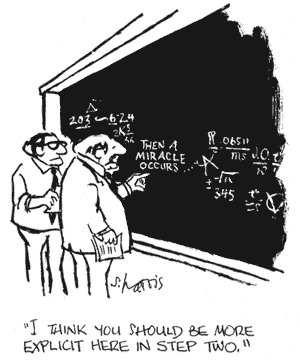Higgins
Banned
- Joined
- Sep 1, 2006
- Messages
- 4,302
- Reaction score
- 414
Fourth: mysterious powers:
Being skinny and not getting eaten isn't a power, but the power to make skinny juice would be.
Fourth again (got sidetracked): mysterious powers...we can see how the smaller of two humanoids (our ancestor) would have quickly become hardwired to live in absolute abject terror of the robust form. Once that terror is hardwired, though, it can be used evolutionarily as something else...just as say, parts of the ear developed from jaws:
http://sci.waikato.ac.nz/evolution/Homology.shtml#earossicles
and even:
A widely used definition of mammals is based on the articulation or joining of the lower and upper jaws. In mammals, each half of the lower jaw is a single bone called the dentary; whereas in reptiles, each half of the lower jaw is made up of three bones. The dentary of mammals is joined with the squamosal bone of the skull. This condition evolved between Pennsylvanian and Late Triassic times. Evolution of this jaw articulation can be traced from primitive synapsids (pelycosaurs), to advanced synapsids (therapsids), to cynodonts, to mammals. In mammals, two of the extra lower jaw bones of synapsid reptiles (the quadrate and articular bones) became two of the middle-ear bones, the incus (anvil) and malleus (hammer). Thus, mammals acquired a hearing function as part of the small chain of bones that transmit air vibrations from the ear drum to the inner ear.
From http://www.agiweb.org/news/evolution/examplesofevolution.html



